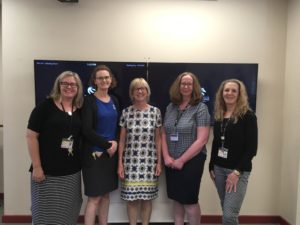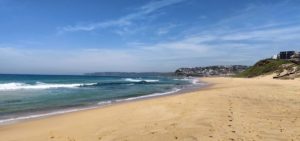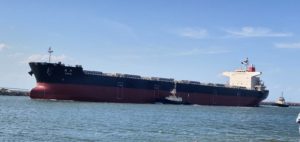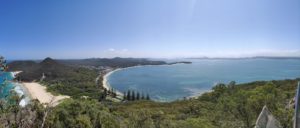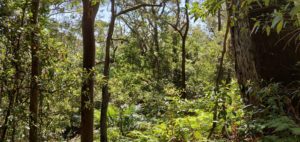I was invited to visit the School of Nursing and Midwifery at Newcastle University by the Dean of School, Professor Sally Chan. Unfortunately, due to appointments abroad, she was unable to be there but I was very well looked after by School staff members.
Before meeting some of the department I had coffee in the university’s library. For me, having coffee in the actual library was a very unusual experience, but I thought it provided a very relaxed working atmosphere.
I first met with Acting Head of School, Associate Professor, Kerry Inder and the leaders of the Nurses and Midwives Master Programmes, Jed Duff and Eileen Dowse. We discussed the various Master programmes they run and courses on offer to the students. There are certainly a great variety of specialties on offer.
More colleagues joined us for a working lunch and I presented the NurSusTOOLKIT. The presentation and following discussion was again recorded via zoom for those who couldn’t attend the meeting. We discussed the importance and increasing relevance of climate change, health and sustainability and the integration possibilities of these topics within the nursing curriculum in Newcastle.
I was then very fortunate to meet up with Dr. Sara Geale, Director of Clinical Education. I spent a very interesting hour with Sara as she very patiently explained the student nurse placements: how and where these are organized according to level of training and specialty required. Again, only 800 hours are spent in practice and the actual placements, in public and private hospitals and care homes are very similar to those our students would visit during their training, although the students are supernumerary, something we’re a long way away from in Germany. However, one placement she mentioned really did catch my attention: some students are sent out on placement to the Royal Flying Doctor Service. This is a service providing primary health care and emergency services for people who, due to great distances, are unable to visit a primary health care centre or hospital. What a great experience! Again this highlights the complexity of providing health care and the effects this will have on climate change.
Following this I was able to spend another very interesting hour with Dr. Victoria Pitt, who is the Programme Convener of the Bachelor of Nursing programme. Victoria explained the curriculum and its’ philosophy, giving me a lot of insight into how the programme runs.
My day at Newcastle University was very informative, thank you to everyone there.
Thanks again Sally for giving me this opportunity and I hope next time to meet you in person!
Thanks to Jenice for all the organisation and help behind the scenes 🙂
Next stop, Brisbane!

